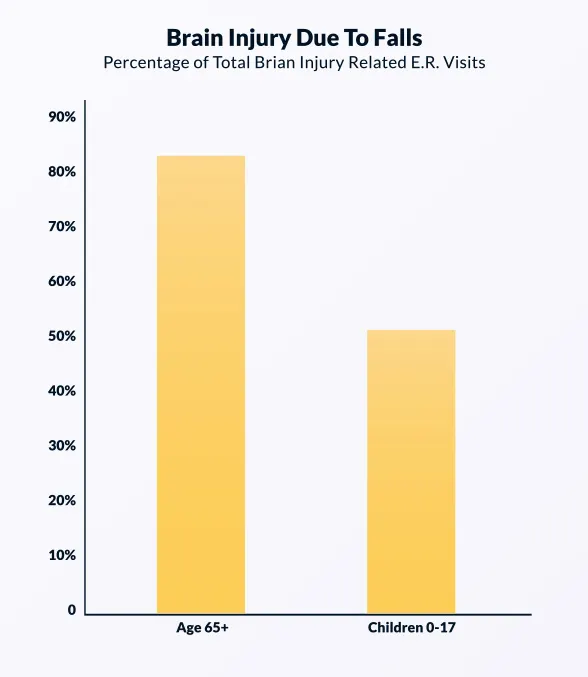Exploring the Importance of Claiming for Brain Injuries

Brain injuries are a traumatic event that can be challenging for an individual’s health and well-being. It can happen as a result of accidents, medical negligence, a slip or fall or maybe some other trauma and its consequences can be profound and enduring.
It can affect their social life, work life, decision-making skills, and motor skills as well, which can negatively influence their day-to-day life. In such circumstances, considering taking a claim for brain injury is not just a legal alternative, but it is a crucial step towards gaining access and support for recovery and rehabilitation.
The process of claiming compensation for brain injury is generally the same as other claims, but it is far more complex because of future compensation a claimant wants in case of any need.
In this article, we will delve into the reasons that emphasize the importance of considering such claims.
Addressing Medical Costs and Rehabilitation Expenses

The recovery journey from a brain injury generally involves an array of medical assistance, ranging from surgeries to therapies and medicines. In addition, rehabilitation programs are crucial in the restoration of lost functioning, and they also facilitate adjustment to any permanent damage.
The financial implications of such comprehensive treatment can be overwhelming. By initiating these claims, an individual can seek compensation to cover their current and expected medical expenses, ensuring easy access to medical care without any need for them to bear excessive costs.
Mitigating Loss of Income and Diminished Earning Capacity
Brain injuries can partially or fully disable an individual capability, causing them to be unable to work permanently or temporarily. As a result, it directly exacerbates their financial conditions, especially when associated with the potential for earning capacity due to cognitive impairment and physical problems.
By pursuing claims, an individual can get compensation to balance out any financial losses, as these claims can alleviate the financial issues caused because of the injury.
Recognition of Pain and Suffering
Beyond the tangible financial repercussions, brain injuries often inflict profound physical pain and emotional suffering. From persistent headaches to mood disturbances and depression, the toll can be tremendous.
Compensation for pain and suffering acknowledges the intangible yet substantial harm experienced by the individual, providing a measure of validation and redress for their situation.
The below graph represents the data on brain injuries due to falls among different age groups.

Facilitating Long-Term Care and Support
Severe brain injuries often make it necessary to get frequent assistance from others in day-to-day activities such as mobility, personal hygiene, and communication. This may require the involvement of caregivers or stay in specialized care facilities.
Through claims, people can get the resources needed for long-term care and support to make sure that their well-being and quality of life are maintained.
Promoting Legal Accountability and Preventive Measures
It is essential to hold responsible parties accountable for brain injury, just not for individual interests, but also to promote a culture of safety and accountability in society. By initiating a claim, people contribute to preventing future accidents and injuries.
Negligent parties are incentivized to execute the measure to minimize the risk of recurrence. In navigating the complexities of a brain injury claim, seeking the expertise of a Chicago brain injury attorney can significantly enhance the possibilities for an individual to ensure rightful compensation and handle legal intricacies effectively.
Did you know?
It’s a myth that you only use 10 percent of your brain.
Access to Expertise and Specialized Services
The complexities of a brain injury claim can be navigated with the help of specialized legal experts. In such cases, you should connect with an attorney as they are well-versed individuals with the right knowledge of this domain.
They understand the nuances of each case, and collection of critical pieces of evidence, also advocate on behalf of the injured party to prove the injury or brain damage to the insurance company. Moreover, these experts facilitate access to the required resources and guidance necessary for navigating the intricacies of the claim process effectively.
Conclusion
Pursuing brain injury claims is not just limited to financial compensation. It signifies a quest for support, justice, and recognition of the claim’s deep impact the unfortunate injury can inflict on people’s lives and their families.
From handling medical expenses and loss of income to acknowledging pain and suffering, a brain injury claim is a crucial step toward reclaiming autonomy and dignity in times of adversity.
Further, by holding negligent parties accountable and supporting preventive measures, people contribute to encouraging a responsible and safer society. Anyone grappling with brain injury consequences should carefully consider the available options and seek the assistance that is important in pursuing a claim effectively.









